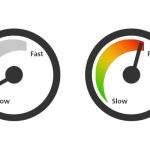Recently we optimised a Managed Secure hosting customer website tilkah.com.au and reduced page loading times from over 40 seconds per page down to under 4 seconds per page. It is important to note that the whole optimisation work was on the web server end, without changing the application itself. Tilkah is an Australia wide retailer for high quality luxe leather and jewellery pieces. The online store tilkah.com.au is built in WordPress and has several hundreds of products sold online. The challenge we faced was to deal with the lack of content optimisation on the front-end. The website was lacking CSS/JS files optimisation and compression, […]
Continue readingTag Archives: Pagespeed
Announcing automated content compression, minification & resampling
Over the last few weeks, we’ve been busy testing Google’s mod_pagespeed technology with our cPanel servers. We now announce that all cPanel servers and websites are using mod_pagespeed. What is mod_pagespeed? mod_pagespeed is a module for Apache web server, developed by Google to help reduce page loading times. As you may already know, Google estimates page loading times and adjusts the ranking of that page accordingly. What this means is that faster websites will appear higher in the search results and slower websites will sink down. How mod_pagespeed speeds up websites? mod_pagespeed applies various technologies, such as CSS and JS […]
Continue readingHow to speedtest your website
Website owners should be aware of Google started changing websites ranking based on pages loading time back in 2010. Google uses a multitude of factors to determine how to rank search engine results. Typically, these factors are either related to the content of a web page itself (the text, its URL, the titles and headers, etc.) or were measurements of the authenticity of the website itself (age of the domain name, number and quality of inbound links, etc.). However, in 2010, Google did something very different. Google announced website speed would begin having an impact on search ranking. Now, the speed […]
Continue reading

